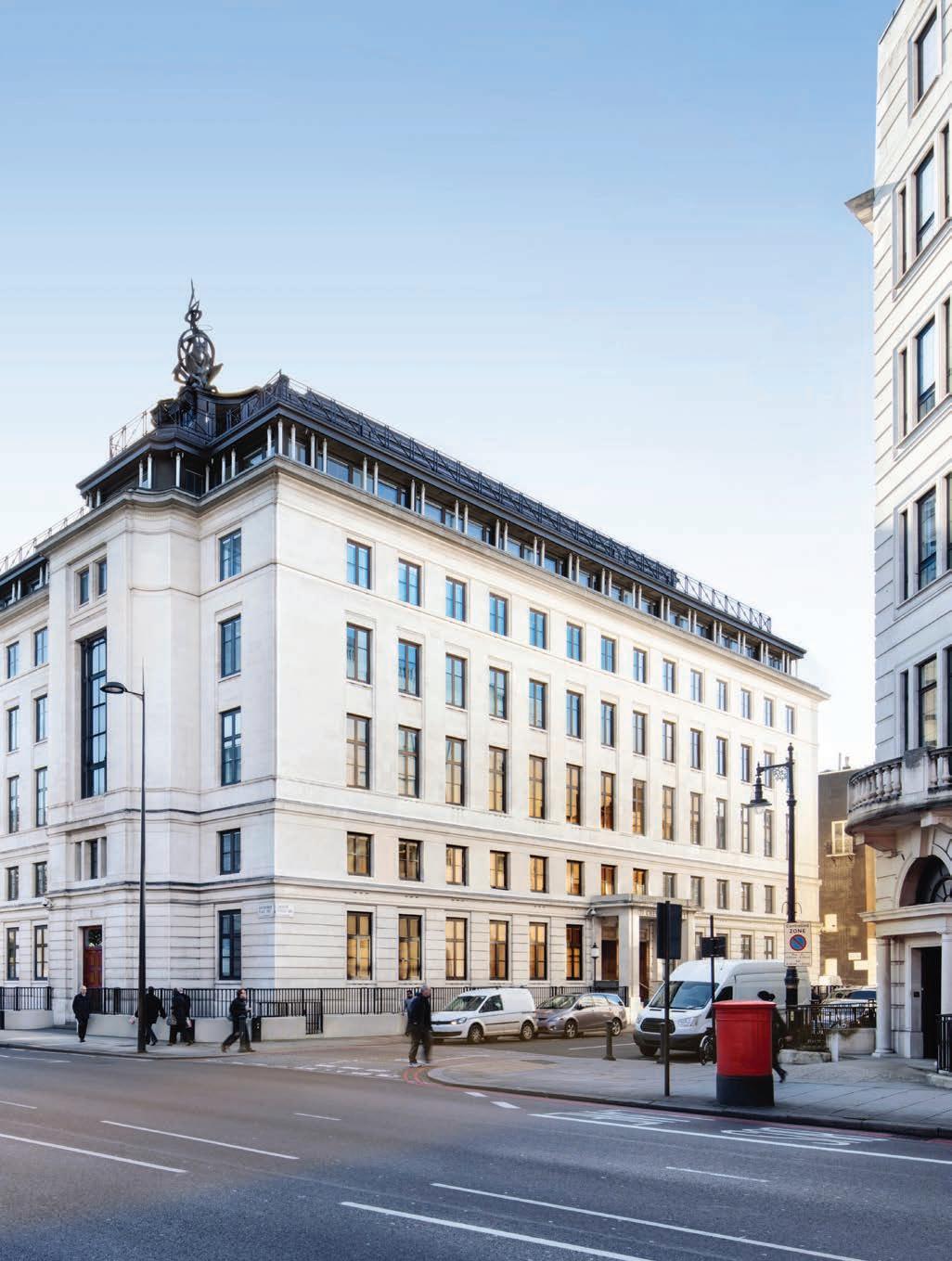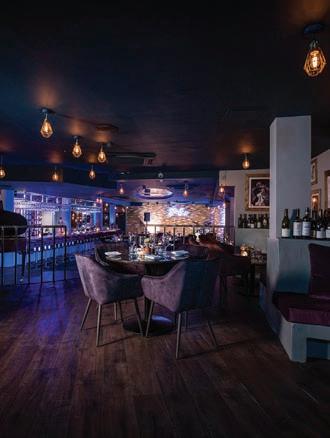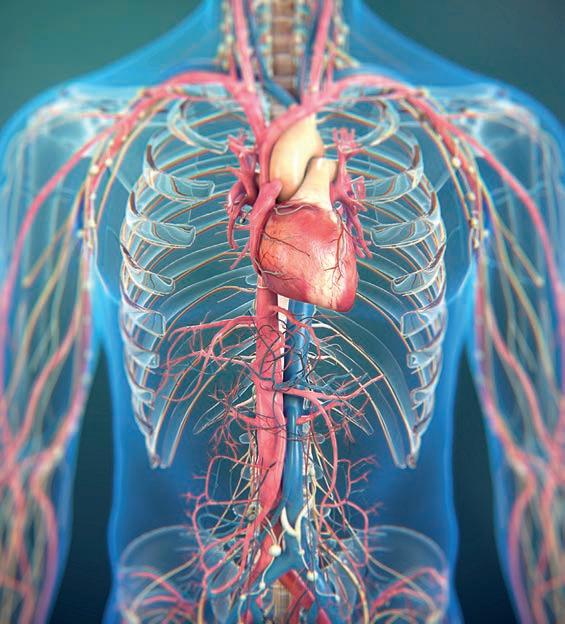
6 minute read
HSMA update
Julian Best, executive property director at The Howard de Walden Estate, on how the Harley Street Medical Area has responded to the challenges of the past year
Welcome to the latest issue of Prognosis. It is wonderful to see the magazine back in print after two digital issues. Its return reflects our belief that the light at the end of this long tunnel is finally getting brighter. While the digital editions did an excellent job of keeping the community informed about the Harley Street Medical Area, we know from past experience that many people have a greater emotional attachment to the physical magazine. This is why it’s so nice to once again enjoy the feeling of flicking through its pages.
It is almost two years since COVID-19 began to impact our lives, and while there has been remarkable progress in the development of vaccines and treatments, the pandemic is still having a major impact on us all. While the HSMA has not been, and still isn’t, exempt from these issues, the past year has been a busy one for the area. Having been delayed by the onset of the pandemic, Cleveland Clinic London finally opened its doors to patients in September 2021. It’s a fantastic facility, which by the end of the year had already seen 10,000 patients – an incredible achievement. Another new entrant to the area is The Royal Marsden Private Cancer Care at Cavendish Square, which has also seen significant demand for its services. The Royal Marsden brand has huge international reach and always comes high up on the list when people are looking for world-class oncology services.
The success of these two openings has shown that patients are returning to the area in significant numbers. But this increase in patient demand has served to highlight one of the less positive things to come out of the past year. A message that we are hearing from many of our The WHO estimates there will be a global shortfall of 18 million health workers by 2030. This is not a short-term or localised issue and, because of the impact it has on operational capacity, it’s on the minds of a lot of people.
operators is one of acute staff shortages. Nurses, theatre staff and support staff are all in short supply and the problem is felt across all hospitals, clinics and support organisations. The World Health Organisation estimates there will be a global shortfall of 18 million health workers by 2030. This is not a short-term or localised issue and, because of the impact it has on operational capacity, it’s on the minds of a lot of people.
At the moment, we are talking to several HSMA operators as we consider sustainable ways to tackle the issue. These are very early preliminary chats, and we will have to see where they lead, but it is something we cannot ignore if we want the area to continue to grow. This is one of the reasons why The Howard de Walden Estate started several years ago to offer key-worker accommodation to nurses and support staff who were putting in the long hours required while commuting significant distances.
Another field we are continuing to explore is the link between hospitals, universities and medical research. We are doing this by looking at space requirements for enablers of medical technology and life sciences, and perhaps even providing some laboratory space. The HMSA is uniquely placed to make a real contribution, hosting as it does this incredibly diverse and specialist medical ecosystem. After all, if we can provide some of the infrastructure for greater collaboration, learning and innovation, it will contribute to London’s ongoing success. There is a growing number of facilities in places like Oxford, Cambridge and Stevenage, but there remains an acute shortage of laboratory space for research and innovation in central London where the biggest talent pool exists. It is a matter of getting the balance right between providing the laboratory facilities themselves, the ancillary services they need and dedicated accommodation for the staff. The idea of housing complementary businesses in the HSMA is very exciting and seems like an obvious step to take. You could have a consultant practicing in the area, perhaps being connected to a university which is undertaking research around the corner.

One piece of good news that goes beyond the HSMA was the successful ballot to establish the Harley Street Area Partnership Business Improvement District (BID). This gives a voice to the diverse occupiers of Marylebone to pursue tangible improvements to the public realm and transformative projects for long-term, sustainable development. Marylebone is a wonderful place, but there is always room for improvement and the establishment of the BID definitely places key projects and decision making in the hands of our community.
Looking a bit further afield, the wider Marylebone area has not been standing still over the past year. We have welcomed many new businesses into the area. Ottolenghi’s latest restaurant has come to Marylebone Lane; Bloobloom, a niche eyewear retailer, has opened a premises on Marylebone High Street; Fursac, a contemporary French menswear label, has also arrived; and 28°-50°, which has been a popular restaurant on Marylebone Lane for many years, has opened 28°-50° By Night on Jason Court, offering late night dining alongside live jazz and blues.
Looking back over 2021, I think that the successes of The Royal Marsden and Cleveland Clinic London really underscore that the HSMA is a place where high-quality health providers want to be. We are already in discussions with another major health provider that wants to open premises in the area because of the existing expertise already based here. The HSMA is now firmly on the global healthcare map and when companies are looking to establish new premises, Harley Street is generally at the very top of their list.
Looking back over the year, I think that the success of The Royal Marsden and Cleveland Clinic London really do underscore that the HSMA is a place where high-quality health providers want to be.
The Howard de Walden Estate 23 Queen Anne Street London W1G 9DL 020 7580 3163 hdwe.co.uk



Bringing Science to Life
through scientific storytelling
Random42 is the global leader in providing 3D medical animation and scientific storytelling solutions to the pharmaceutical, biotechnology and medical industries.
Founded in 1992, Random42 is a pioneer of the medical animation industry and with this 30 years of experience, has developed into the largest company within this space. A unique combination of scientists, artists, animators and programmers, who collaborate to effortlessly intertwine the worlds of science, art and technology.
We have won over 250 awards for our high-quality medical animation and scientific storytelling and proudly produce some of the most impactful scientific imagery, stories and interactive experiences for our clients.
Our expertise in documentary-style content ensures that our award-winning animations are scientifically accurate and of the highest cinematographic quality: • Support scientific content with high-end medical animation • Help viewers visualize the science, encouraging a deeper understanding • Breathtaking and immersive visual effects • Virtual reality, augmented reality and interactive experiences • In-house PhD-qualified scientists • Talented and experienced artists from the film industry • Up to 8K ultra HD
Newcomers to the Harley Street Medical Area after relocating from Soho to a new home on Marylebone Lane. With such strong medical connections, the vibrant and charming location felt like the perfect fit for a creative and innovative company in the industry.
114-116 Marylebone Lane, London, W1U 2HH, UK info@random42.com www.random42.com

